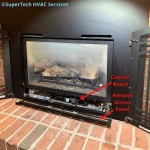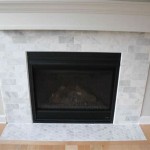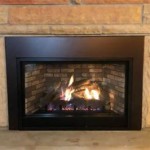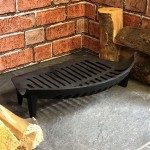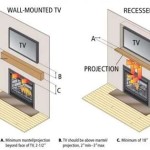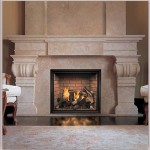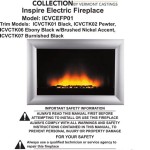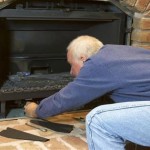Adding A Wood Burning Fireplace To An Existing Home
The allure of a wood-burning fireplace is undeniable. It evokes feelings of warmth, comfort, and a connection to tradition. However, incorporating this feature into an existing home requires careful planning, consideration of various factors, and adherence to safety regulations. This article provides a comprehensive overview of the key aspects involved in adding a wood-burning fireplace to an existing residence.
Before embarking on this project, a thorough assessment of the home's existing structure is paramount. This includes evaluating the structural integrity of the walls and flooring where the fireplace and chimney will be located. A qualified structural engineer should conduct this assessment to identify any potential weaknesses or limitations that need to be addressed. Load-bearing capacity, foundation stability, and existing framing are all critical elements to scrutinize.
Equally important is determining the suitability of the existing chimney, if one is present. Many older homes may have chimneys that were originally intended for other purposes, such as heating oil or coal. These chimneys may not be adequately sized or constructed to handle the higher temperatures and corrosive byproducts of wood combustion. A certified chimney sweep should inspect the chimney for cracks, deterioration, and proper flue lining. If the existing chimney is deemed unsuitable, a new chimney system will need to be installed, adding to the project's complexity and cost.
The design of the fireplace should complement the home's architectural style and meet the homeowner's aesthetic preferences. Traditional brick fireplaces offer a classic look, while more contemporary designs may incorporate stone, tile, or metal accents. The size and shape of the firebox should be carefully considered to ensure efficient heating and optimal visual appeal. The hearth, the non-combustible area in front of the firebox, must also be of adequate size to protect the flooring from sparks and embers. Building codes typically specify minimum dimensions for the hearth based on the firebox opening size.
Siting and Ventilation Considerations
The location of the fireplace within the home is a critical decision. Ideally, the fireplace should be situated in a central living area where its warmth and ambiance can be enjoyed by all occupants. Proximity to exterior walls is necessary for venting the chimney, but this needs to be balanced with interior design considerations. The chosen location must also allow for adequate clearance from combustible materials, such as wood framing, curtains, and furniture.
Ventilation is essential for the safe and efficient operation of a wood-burning fireplace. The fireplace needs a sufficient supply of air to support combustion. Inadequate air supply can lead to incomplete combustion, resulting in the production of carbon monoxide, a dangerous and odorless gas. It can also cause smoke to back up into the room. Installing an outside air kit, which brings fresh air directly into the firebox, can help to mitigate these issues. These kits are particularly important in newer, tightly sealed homes where natural air infiltration is minimal.
Furthermore, the chimney must be properly sized and designed to create adequate draft. Draft is the flow of air up the chimney, which carries away smoke and combustion gases. An undersized or poorly designed chimney can result in poor draft, causing smoke to puff back into the room. Factors that affect draft include the height of the chimney, the diameter of the flue, and the presence of obstructions, such as trees or nearby buildings. The chimney should extend at least three feet above the highest point where it passes through the roof and at least two feet higher than any structure within ten feet.
Local building codes and regulations govern the installation of wood-burning fireplaces. These codes are designed to ensure the safety of the occupants and the surrounding environment. It is imperative to obtain all necessary permits before beginning any work. Failing to do so can result in fines, delays, and even the requirement to remove the fireplace. Building codes typically address issues such as fireplace construction, chimney specifications, clearances to combustibles, and smoke detector requirements.
Compliance with environmental regulations is also essential. Many municipalities have restrictions on wood burning, particularly during periods of high air pollution. These restrictions may limit the types of wood that can be burned, the times of day when burning is allowed, or even prohibit wood burning altogether. It is crucial to be aware of and comply with these regulations to avoid penalties.
Fireplace Inserts and Alternatives
For homeowners seeking to improve the efficiency of an existing open fireplace or add a wood-burning element without extensive construction, a fireplace insert can be a viable option. A fireplace insert is a self-contained firebox that is designed to be installed within an existing fireplace opening. Inserts typically have a cast iron or steel body and a glass door, which helps to control airflow and improve heat output. They are much more efficient than open fireplaces, converting a higher percentage of the wood's energy into usable heat.
Fireplace inserts are available in a variety of sizes and styles to fit different fireplace openings. They can be fueled by wood, gas, or pellets. Wood-burning inserts require a chimney liner to be installed, which is a metal pipe that runs the length of the chimney and provides a safe and efficient conduit for combustion gases. The liner helps to prevent creosote buildup, which is a flammable substance that can accumulate in the chimney and cause a fire.
Alternatives to traditional wood-burning fireplaces include gas fireplaces and electric fireplaces. Gas fireplaces offer the convenience of instant heat and adjustable flame height, without the need for wood storage or ash removal. They can be fueled by natural gas or propane and are typically vented through a wall or roof. Electric fireplaces, on the other hand, do not require venting and can be installed almost anywhere with an electrical outlet. They produce heat by passing electricity through a heating element and typically have a realistic flame display.
The choice between a traditional wood-burning fireplace, a fireplace insert, a gas fireplace, or an electric fireplace depends on the homeowner's individual needs and preferences. Factors to consider include budget, efficiency, maintenance requirements, and aesthetic appeal.
Safety is paramount when operating a wood-burning fireplace. A carbon monoxide detector should be installed in the home to alert occupants to the presence of this dangerous gas. The detector should be located near the sleeping areas and tested regularly to ensure it is functioning properly.
Proper wood storage is also essential. Wood should be stored outdoors, off the ground, and covered to protect it from the elements. Wet or damp wood does not burn efficiently and produces more smoke. Seasoned wood, which has been allowed to dry for at least six months, burns cleaner and produces more heat.
Cost Considerations and Project Management
The cost of adding a wood-burning fireplace to an existing home can vary widely depending on several factors, including the complexity of the project, the materials used, and the labor costs in the area. Installing a new chimney system is typically the most expensive part of the project. The cost of the fireplace itself can range from a few thousand dollars for a basic model to tens of thousands of dollars for a custom-designed unit. Other costs to consider include permits, inspections, structural modifications, and finishing work.
It is advisable to obtain multiple quotes from qualified contractors before beginning the project. The quotes should include a detailed breakdown of the costs for labor, materials, and permits. Check the contractor's references and ensure they are licensed and insured. A written contract should be signed before any work begins, outlining the scope of the project, the payment schedule, and the completion date.
Effective project management is crucial for a successful fireplace installation. This involves coordinating the various trades involved, such as the structural engineer, the chimney sweep, the mason, and the carpenter. Regular communication with the contractor is essential to ensure the project stays on schedule and within budget. It is also important to monitor the quality of the work and address any issues promptly.
Adding a wood-burning fireplace to an existing home is a significant undertaking that requires careful planning, meticulous execution, and adherence to safety regulations. However, the rewards of a warm and inviting fireplace can be well worth the effort. By understanding the key considerations outlined in this article, homeowners can make informed decisions and create a beautiful and functional addition to their homes.
Regular maintenance is crucial for the safe and efficient operation of a wood-burning fireplace. The chimney should be inspected and cleaned annually by a certified chimney sweep to remove creosote and other debris. The fireplace should also be inspected regularly for cracks, damage, and proper operation of the damper. Any necessary repairs should be made promptly.
Choosing the right type of wood is also important. Hardwoods, such as oak, maple, and ash, burn hotter and longer than softwoods, such as pine and fir. Avoid burning treated wood, painted wood, or wood that has been exposed to chemicals, as these can release harmful toxins into the air.

Converting A Fireplace To Wood Burning Stove Chesneys

Adding A Fireplace To Existing Home Where For Fireplaces

Can You Install A Wood Stove In Fireplace Direct Stoves

Converting A Fireplace To Wood Burning Stove Chesneys

Your Guide To Wood Stove Installation Full Service Chimney

Woodburner Installations In Victorian Fireplaces Cosy Stoves

Your Home Doesn T Have A Fireplace And You Want To Add One

Victorian Fireplace Hobbit Installation Small Stoves

Fireplace Additions Answers On

Fireplace Knockout And Wood Burner Installation Taunton

